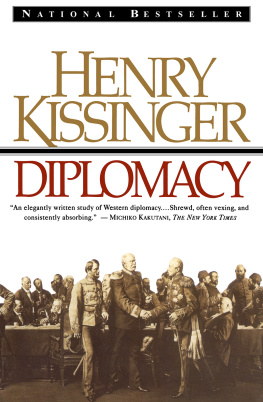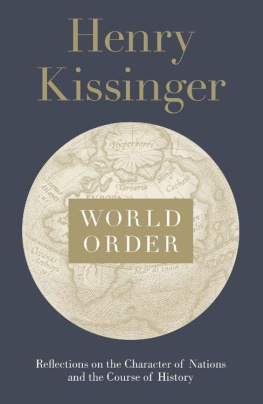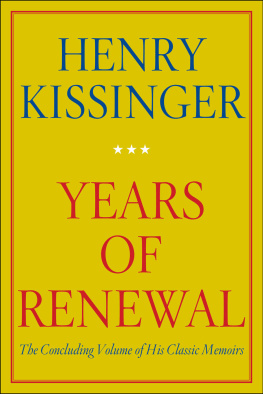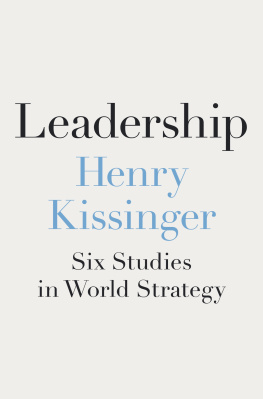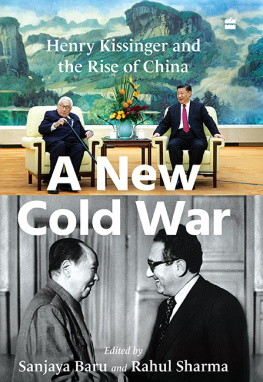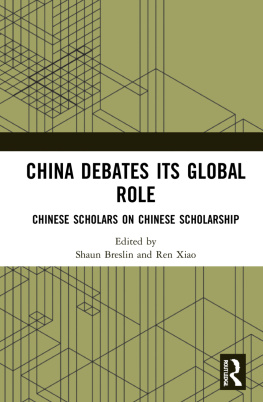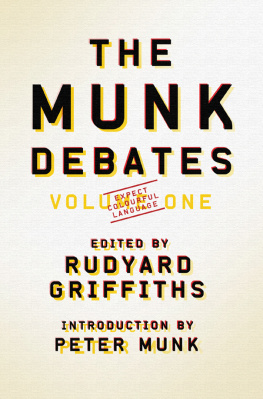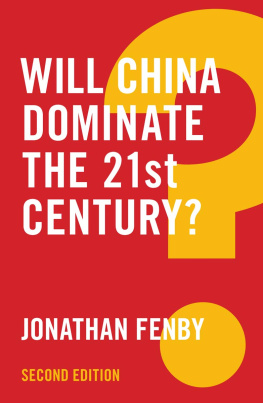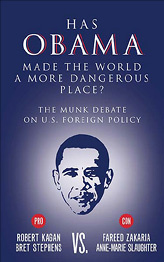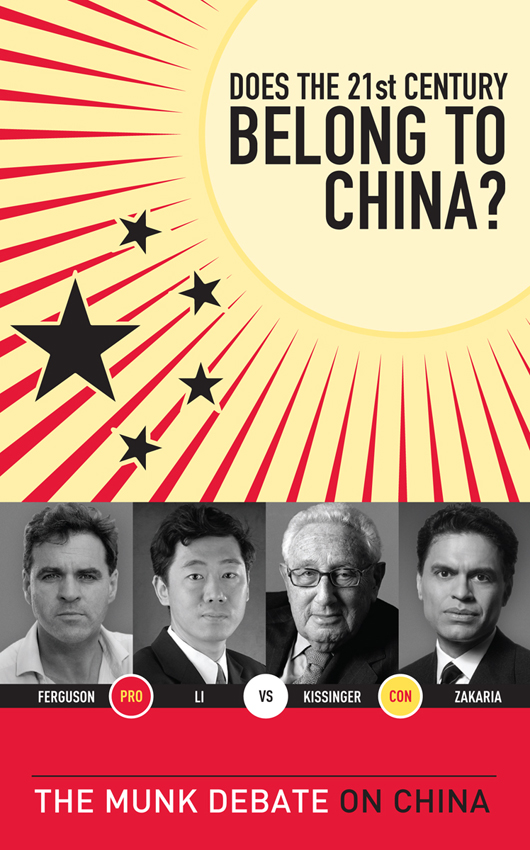DOES THE 21st CENTURY
BELONG TO CHINA?
KISSINGER AND ZAKARIA VS. FERGUSON AND LI
THE MUNK DEBATE ON CHINA
EDITED BY RUDYARD GRIFFITHS AND PATRICK LUCIANI

Copyright 2011 Aurea Foundation
Henry Kissinger interview copyright 2011 John Geiger
David Li interview copyright 2011 John Geiger
All rights reserved. No part of this publication may be reproduced or transmitted in any form or by any means, electronic or mechanical, including photocopying, recording, or any information storage and retrieval system, without permission in writing from the publisher.
Distribution of this electronic edition via the Internet or any other means without the permission of the publisher is illegal. Please do not participate in electronic piracy of copyrighted material; purchase only authorized electronic editions. We appreciate your support of the authors rights.
This edition published in 2011 by
House of Anansi Press Inc.
110 Spadina Avenue, Suite 801
Toronto, ON, M5V 2K4
Tel. 416-363-4343
Fax 416-363-1017
www.anansi.ca
LIBRARY AND ARCHIVES CANADA CATALOGUING IN PUBLICATION
Does the 21st century belong to China? : the Munk
debate on China / Henry Kissinger... [et al.] ; edited by
Rudyard Griffiths and Patrick Luciani.
(The Munk debates)
eISBN 978-1-77089-063-3
1. China History 21st century. I. Kissinger, Henry,
1923 II. Griffiths, Rudyard III. Luciani, Patrick
IV. Series: Munk debates
DS779.4.D63 2011 951.06 C2011-904008-5
Library of Congress Control Number: 2011929943
Cover design: Alysia Shewchuk

We acknowledge for their financial support of our publishing program the Canada Council for the Arts, the Ontario Arts Council, and the Government of Canada through the Canada Book Fund.
INTRODUCTION BY PETER MUNK
On the evening of June 17, 2011, we held our seventh Munk Debate at Torontos Roy Thomson Hall. The auditorium, which seats 2,700, was filled to capacity, and there were thousands of people following the debate online. It was thrilling for me to be part of an event that in only three years has captured a wide and growing audience across Canada and beyond.
When we started holding these debates three years ago, it was our intention to bring the best minds to Toronto to grapple with some crucial issues facing the world. Our goal was to elevate the quality of discussion on important global matters for the benefit of Canadians. I am proud to say that through the work and efforts of the Aurea Foundation Board we have been able to achieve this, and here I especially want to credit Rudyard Griffiths for his vision and management. On June 17 he once again acted as host and moderator of the debate.
I have always believed that clarity is best achieved by inviting the finest thinkers to speak to us when they do not see eye-to-eye. There is nothing wrong with describing and discussing crucial issues, but debating them is better. The world is no different from any other object in that we can make more sense of it by viewing it from different angles.
I think the best way to achieve this clarity is through a format that challenges informed and articulate thinkers to go beyond telling us what they know, or think they know. Talking about the times in which we live is one thing, but to stand up and defend ideas when they are being challenged by equally informed and articulate opponents who think they know better, is another. Which was what the debaters did on the evening of June 17 at Roy Thomson Hall. The topic was China. We in the West have traditionally focused on the Near East, and understandably so, but the last two decades compelled us to increasingly turn our attention to the Far East. China has seemingly come out of nowhere to play an important economic and political role around the world. It wasnt out of nowhere, of course. Chinas growth started with the countrys shift to the market economy in 1978. Even taking this shift into account, an average growth of 10 percent per annum by the early 1990s was so impressive as to seem aberrant or unreal. With new-found economic strength, and especially since they gained this strength at a time when Europe and the United States were perceived to be losing theirs, China has also taken its place on the international stage as a leading political power. The debate in Toronto was about determining whether or not China will be able to sustain that momentum and become the dominant global force of the 21st century.
We were privileged to have four of the most insightful thinkers on the subject. First, I felt truly humbled to introduce Dr. Henry Kissinger, who had graciously accepted our invitation to participate. There isnt much I could say about Dr. Kissinger that readers wouldnt already know. He is not only a brilliant student and teacher of history, but more importantly, he is a maker of history. We remember him for his role in opening up China for the West when he was a member of President Richard Nixons cabinet as Secretary of State. He received the Nobel Peace Prize in 1973 for his extraordinary work on the international stage, and he received the Presidential Medal of Freedom in 1977.
That evening we were witnessing a bit of history as well. I learned that Dr. Kissinger had never taken part in a public debate, so this really was a special occasion and an honour for all of us at The Munk Debates. He came to Toronto following the recent publication of his monumental book, On China , and was arguing against the resolution.
Joining Dr. Kissinger was the young rising international star: Fareed Zakaria. I am sure most readers have seen Fareed as the host of Fareed Zakaria: GPS , CNNs flagship program on international affairs. Named by Foreign Policy as one of the top 100 global thinkers, he is also the editor-at-large for Time magazine, and the author of a number of books, including the bestsellers The Future of Freedom and The Post-American World . At the age of twenty-eight he was editor of the prestigious journal Foreign Affairs . He then went on to Newsweek , where he wrote a number of award-winning articles, including his famous October 2001 piece, The Politics of Rage: Why Do They Hate Us? And last year Fareed earned an Emmy nomination for his interview with Chinas Premier Wen Jiabao.
Arguing for the resolution was Niall Ferguson, who took part in the first Munk Debate in 2008. Not only is Professor Ferguson a distinguished economic historian at Harvard University, he is also the bestselling author of numerous books. His latest, entitled Civilization: The West and the Rest , will be published in North America in November 2011.
Professor Fergusons understanding of the world economy is made accessible by his skills in bringing that knowledge to a wide audience. Recognizing the key factors that drive economic growth, his thesis was that China possesses all that is necessary to propel it to international pre-eminence. What added special piquancy to the evening was that Professor Ferguson is Dr. Kissingers official biographer.
I also welcomed Dr. David Daokui Li, who joined Niall on the pro side. Not only does he know intimately the factors that have made China an economic powerhouse, he also brought a unique perspective and personal knowledge of China. His childhood was spent in Sichuan province, as a result of his parents being displaced to the countryside during the Cultural Revolution. Under such conditions he managed to earn his doctorate in economics at Harvard University and currently holds a number of teaching positions in the United States and in his home country. He is the Director of the Center for China in the World Economy at the Tsinghua University School of Economics and Management in Beijing. He is also a delegate to the Beijing Peoples Congress, one of three academic members of the monetary policy committee of the Central Bank of China, and a member of the World Economic Forum in Davos.



